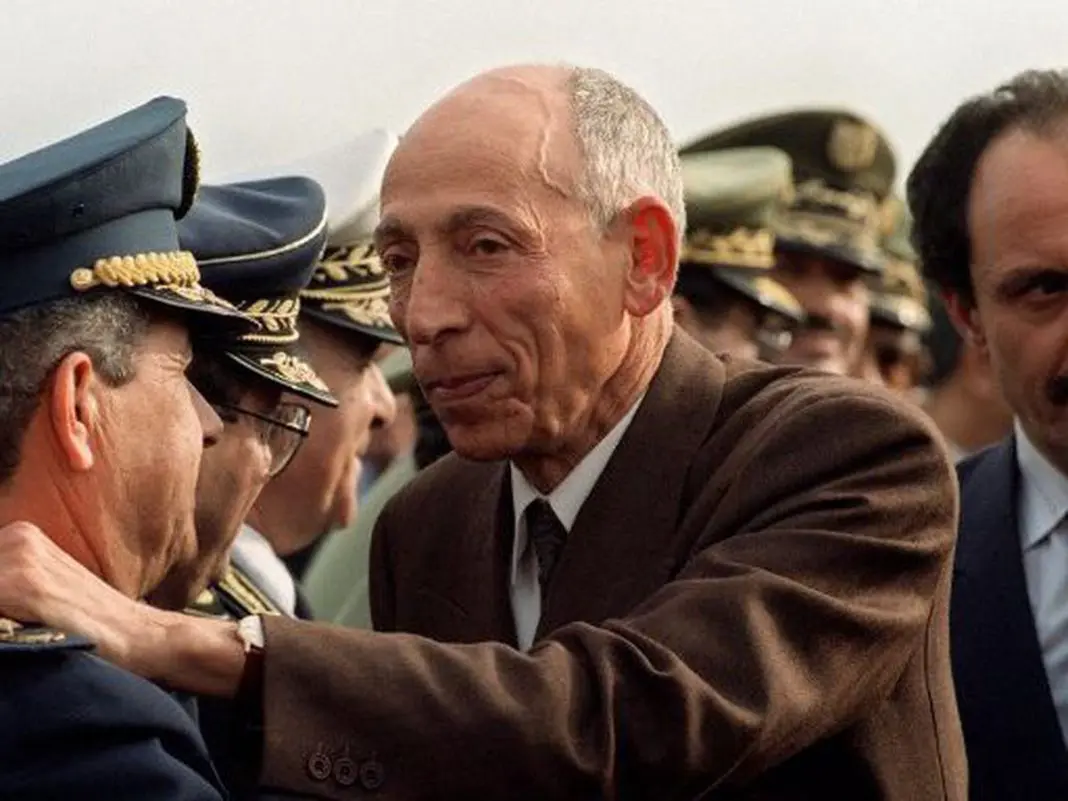Mohamed Boudiaf was a symbol of hope for the Algerian people. He was a historical figure who fought for the independence of Algeria and co-founded the FLN. He was known for his fight against extremism and state corruption, which earned him the nickname “Si Tayeb El Watani,” meaning “the sincere patriot.”
Boudiaf’s appointment as president of the state high committee in January 1992 came at a time when Algeria was facing a crisis. The country was in the midst of a political and economic turmoil, and the rise of Islamic extremism was threatening the stability of the nation. Boudiaf was seen as a unifying figure who could bring the country together and restore order.

The Assassination
However, just six months into his presidency, Boudiaf was assassinated in a shocking attack that was broadcast live on national television. The assassin, a member of the presidential guard, approached Boudiaf from behind and shot him in the back. The footage of the assassination was broadcast repeatedly on television, shocking the nation and the world.
The reasons behind Boudiaf’s assassination remain unclear, but many believe that it was a politically motivated act. Some speculate that Boudiaf’s fight against corruption and his desire to build a better Algeria without taking into account the oppositions of the regime in place may have played a role in his death.

The Impact
Boudiaf’s assassination marked the beginning of a dark period in Algerian history. The country was plunged into a decade-long civil war that claimed the lives of over 200,000 people. The assassination of Boudiaf remains a painful memory for Algerians, who saw in him a symbol of hope and a unifying figure who could bring the country together.
Investigation And Trials
Following Boudiaf’s assassination, an investigation was launched to determine who was responsible for the attack. The assassin, identified as Lembarek Boumaarafi, was captured and sentenced to death in a trial that was widely criticized for its lack of transparency. Many believed that the trial was a mere formality and that the real perpetrators of the attack were never brought to justice.
In 1994, a group of army officers attempted a coup d’état, which was believed to be linked to Boudiaf’s assassination. The coup failed, and the officers were arrested and put on trial. During the trial, evidence emerged that suggested that the assassination was part of a larger conspiracy involving high-ranking officials within the Algerian government and military. However, no one was ever held accountable for the crime.
Boudiaf’s Legacy
Boudiaf’s legacy lives on in Algeria, where he is remembered as a symbol of hope and a unifying figure who fought for the country’s independence and worked to build a better future for its people. His assassination remains a painful memory for Algerians, who continue to seek answers and justice for his death.
Boudiaf’s life and death serve as a reminder of the challenges faced by nations in transition and the importance of building strong institutions to ensure stability and democracy. His legacy is a testament to the power of leadership and the enduring spirit of those who fight for a better future.
